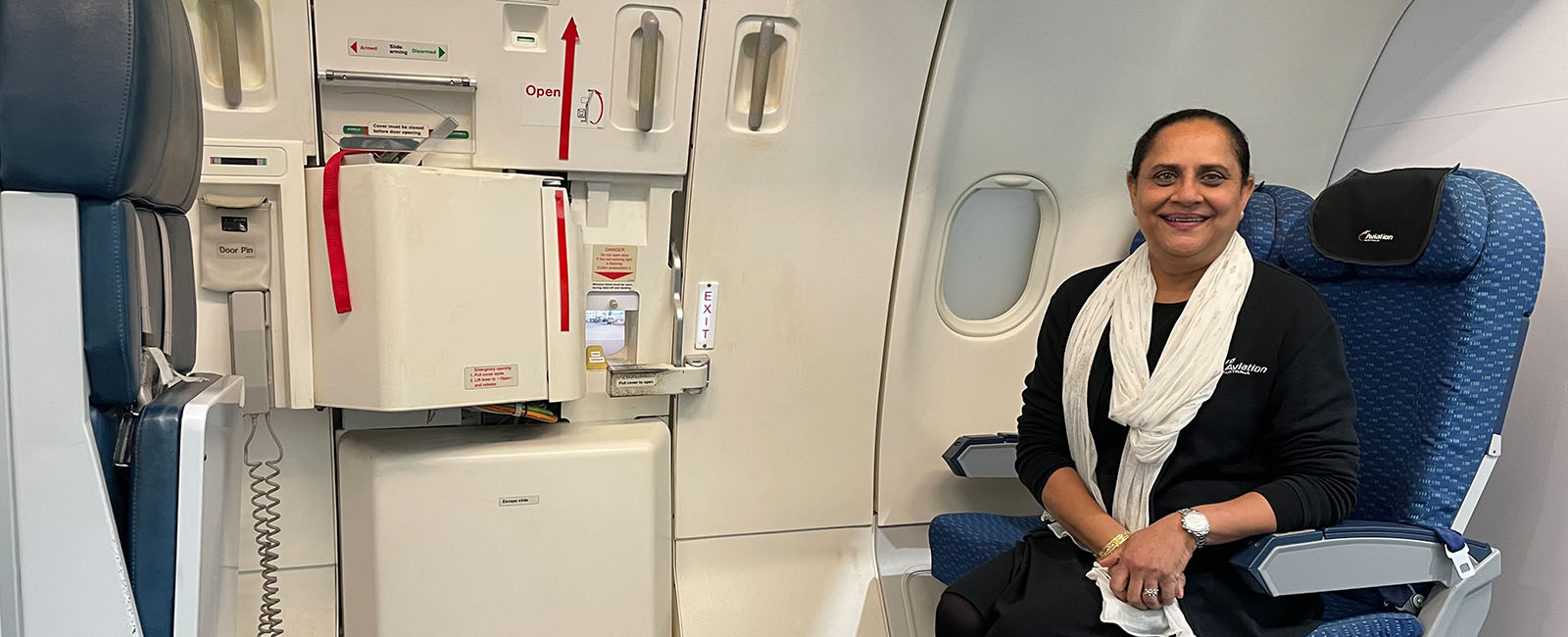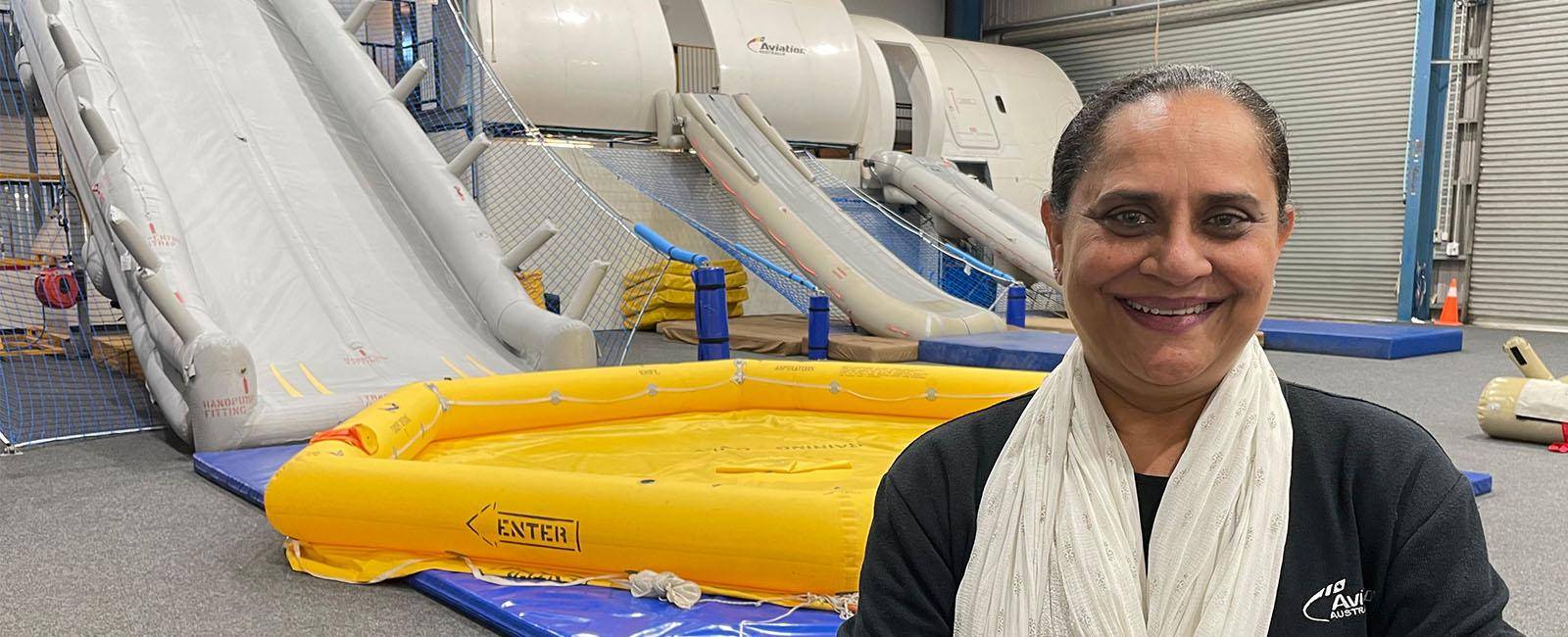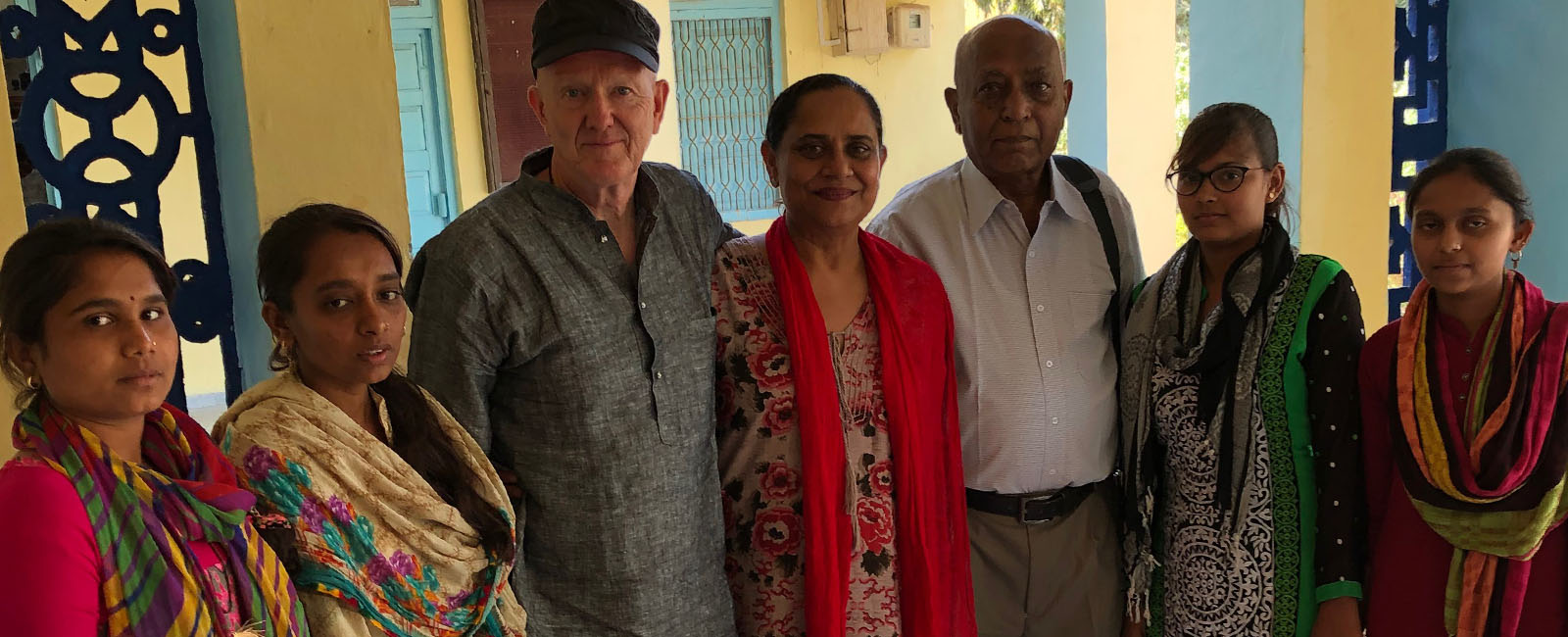
Growing up in Fiji, Harsha Patel could never have imagined the aviation career that was ahead of her, despite the fact she was always in and around airports.
“Aviation has been there throughout my life. My family had a duty-free shop at the airport. Even before that, I remember going to the aerodrome as my dad was learning to fly. Mum and I would stay and watch him flying."
Her father never finished his pilot training, but his passion for flying remained. And that passion has obviously rubbed off on his daughter.
“Aviation is in my blood, but to be honest I fell into working in the industry. My background is in international education”.
Harsha travelled the world teaching English, living in several different countries before becoming a Cambridge-accredited teacher trainer, which she rightly recognises as quite an achievement for someone from a non-English speaking background.
She then received an opportunity to work at Aviation Australia, a Registered Training Organisation based at Brisbane Airport, where she helped develop Aviation English courses. It turned out to be the perfect role for Harsha, combining her expertise in teaching with her interest in aviation.
“English is the lingua franca for aviation communications. When people think about aviation English, they think about pilots. But aviation English is not just English for pilots. There’s English for engineers, there’s English for cabin crew, there’s English for drone pilots. It’s quite varied!”.
There’s a famous ad for Berlitz language schools where a new coast guard in Germany receives a distress call over the radio saying “We are sinking! “We are sinking!”. The coast guard replies, in a thick German accent, “what are you thinking about?".
This humorous misunderstanding serves as a serious reminder about the importance of standardised language in aviation.
“This is high stakes. It’s important for the safety of the aircraft that everyone correctly understands what’s being said".
Harsha is grateful to Aviation Australia, who transitioned her into the role she has today as Operations Manager for Flight Safety Training. The role oversees the Flight Safety Training department, which includes dry hire (all the devices and equipment used by airlines for their training), cabin crew training and a small English language department.
Much like with standardised Aviation English training, Harsha stresses the importance of cabin crew training.
“A lot of people have travel and glamour in their mind when they think of cabin crew. In fact, that’s a misunderstanding. Yes, there is that, but there is a huge focus on the safety of your passengers. Our courses focus on making sure the student has a good understanding of what it is to be cabin crew and that they are ready for the recruitment and training process. We have practical elements to the course – all the training devices like the raft, the pool and the doors."
“One of the biggest things that comes out of the cabin crew course, and I wish I could bottle it, is the confidence”.
“The feedback we get is quite amazing. At graduations, the parents come up and tell me how much their child has changed. One girl wouldn’t even get up in the morning. Her parents always had to drag her out of bed. But with this course, she was out of bed by 6am. Hair and make up done perfectly. She was never late to class, not even one day. And from that she was able to get a job as a flight attendant. Her whole life changed within the space of two or three months.”
But it isn’t only the lives of students in Australia that Harsha is helping to change.
Quietly and humbly, she has been making a significant impact on the educational and developmental outcomes of a group of students in India through the establishment of a charity, the Saraswati Trust, named after the goddess of knowledge and education.
The charity supports students at a school Harsha’s grandfather built in India 45 years ago. He could never have imagined the legacy he was building at that time or that his son and granddaughter would continue to champion the school many decades later.
Following a visit to the school about 10 years ago, Harsha’s father came back to Australia determined to raise funds to replace the roof at the school.
“Dad had already retired. He must have been 75 years old or so. But he started uber-ing to earn some money. Once he had enough money for the roof, next came a whole refurbishment and painting”.
Harsha and her husband, David, realised that a lot of girls weren’t being given the opportunity to do further study at the school, and were leaving in their early teens. This reminded them of their own mothers and became the inspiration to set up a charity with Harsha’s father to enable girls to continue their studies.
“My mum never finished school. David’s mum never finished school. At that time, it was normal, but now… now we can make a difference”.
The charity was started in 2018, with the aim to sponsor six female students each year, which they did two years in a row. They also identified a range of barriers for girls to continue attending school and improved what they could, such as increasing the number of female toilets.
At the start of 2020, another six students commenced studying with the sponsorship – this time extending the program to male students after seeing the challenges some of them faced.
Then Covid hit. Everything shut down. The school shut down. The students' ability to study stopped.
India is now slowly opening up again and kids are heading back to school. Harsha is in talks with the principal to understand what services are needed right now and how they can best support the students.
“I really missed working on the charity when Covid shut the school down. Because what is all this for?” she says, gesturing around her workplace. “It’s good. It’s interesting. I love aviation. But my charity is giving me the opportunity to do something for other people. It’s only a small thing right now. But hopefully, we can make it bigger.”
On a visit to the school early last year, Harsha and her father stopped on a small dirt track. He told her that this road was part of Mahatma Gandhi’s Salt March, a 390km protest march in the 1930s against the British laws that prevented Indians from manufacturing their own salt. The protest started with 79 people and ended with tens of thousands, resulting in the arrest of nearly 60,000 people.
As Harsha and her Dad were looking around this non-descript dirt track that had played such an important role in the history of India, two women appeared. Realising Harsha’s connection to the school, they dropped everything and fell at her feet. Harsha was surprised and confused.
It turned out that one of their daughters had received support from Harsha’s charity. The woman told Harsha that her daughter used to cry every day before receiving the sponsorship, because she really wanted to keep studying. But at the time, she essentially had two choices – either get married now or work in the family farm until she was married. The mother told Harsha - "You have changed her life".
What the mother didn’t know is that the program has also changed Harsha’s life.
“We’re happy to support these students. It’s such good food for the soul. We tell the kids we don’t expect anything from them. We want them to study. If it improves their lives, they can get a better job and they can educate their children. And if they have the capacity in the future, they can support somebody else and pass the torch. That’s all.”
Thinking back to Mahatma Gandhi, he is reported to have said that “the best way to find yourself is to lose yourself in the service of others”.
It is obvious that through the work of the Saraswati Trust, Harsha has finally found herself.


